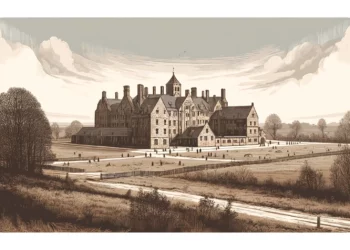New research from the University of California, Los Angeles and Mills College reports that generational wealth isn’t something that only humans have figured out.

Do you ever dream of how different your life would have been if only you were born with a silver spoon in your mouth — somewhere on a luxurious yacht? Chances are we’ve all had that thought at one point or another in our lives. Maybe the results of a new paper could help soothe our anguish over our bad luck, by letting us know that squirrels, too, have to deal with generational wealth.
The “animal privilege” identified by the team can have a meaningful and unequal impact on a squirrel’s life development, the authors report.
Stacking acorns
“The concept of privilege — differential access to inherited resources — is familiar in the context of human economic and social systems, but many other animals also transfer some forms of wealth across generations,” the authors write. “Although some of these examples are well known to workers within particular animal systems, there have been few efforts to understand the implications of privilege within a comparative evolutionary context.”
Animals are born with different degrees of “wealth”, the team writes, which comprises the various resources they need in order to thrive. Although that might sound amusing on the face of it, the authors explain that this is a “strikingly parallel phenomena […] in animal societies” compared to our own. As such, the issue of animal privilege can be studied using the same approaches we use to investigate privilege in human societies.
One example is that of social status in hyena societies, which broadly reflects the way humans are born into and inherit social hierarchies.
“The spotted hyena [offspring] inherit their social rank from their mothers within the maternal line (matriline) and priority of access to ephemeral food within shared territories,” the researchers note. “As a result, full family lines within this species increase in their representation over time, whereas other lineages decrease in numbers or even go extinct over time.”
Squirrels, too, experience their own types of privilege. This mostly revolves around the issue of territory and the resources available in these areas. For example, in North American red squirrels (Tamiasciurus hudsonicus), mothers store spruce cones from their territory and can give these over to their daughters. Squirrels who receive such ‘inheritance’ survive longer and reproduce earlier than those who are not given a head start in life, the team notes.
Privilege such as this can maintain itself over generations. Just like intergenerational wealth can lead to inequality between different families in humans, such inheritance can create systemic privilege for certain lineages of squirrels, leading to dynamics comparable to the class divisions seen in human society.
While previous research has investigated the consequences of privilege, the team argues that we could stand to benefit from identifying the similarities between the drivers of privilege between human and natural communities.
“Comparative study of privilege in animal societies may yield a greater understanding of (1) the deep evolutionary roots of wealth inequality across the Tree of Life, (2) how advantages for some but not other individuals perpetuate privilege to create and sustain a landscape of inequality, (3) how multigenerational inequality and its compounding of advantages for some contribute to unequal playing fields across multiple species, including our own,” the researchers stated. “We might begin to understand the conditions producing more or less even playing fields in the natural world.”
Thinking of squirrels as being privileged, or as belonging to well-to-do lineages or poor families might seem silly. But the research shows that, in their own way, these animals experience inequality in a very similar way to how humans do, albeit on a much smaller order of magnitude. Despite the fact that an inheritance of pine cones might not seem like much to us, it does affect a squirrel in the same way that a rich inheritance of land or money might affect a human being; in the end, they impact how well we are able to survive, thrive, find a mate, and produce offspring of our own.
Understanding how privilege perpetuates itself in animal communities might give us some unique insight into how it forms and maintains itself in our own communities. The humble squirrel could, when viewed in this light, help us foster equality and equity in our own lives.
The paper “The nature of privilege: intergenerational wealth in animal societies” has been published in the journal Behavioral Ecology.






